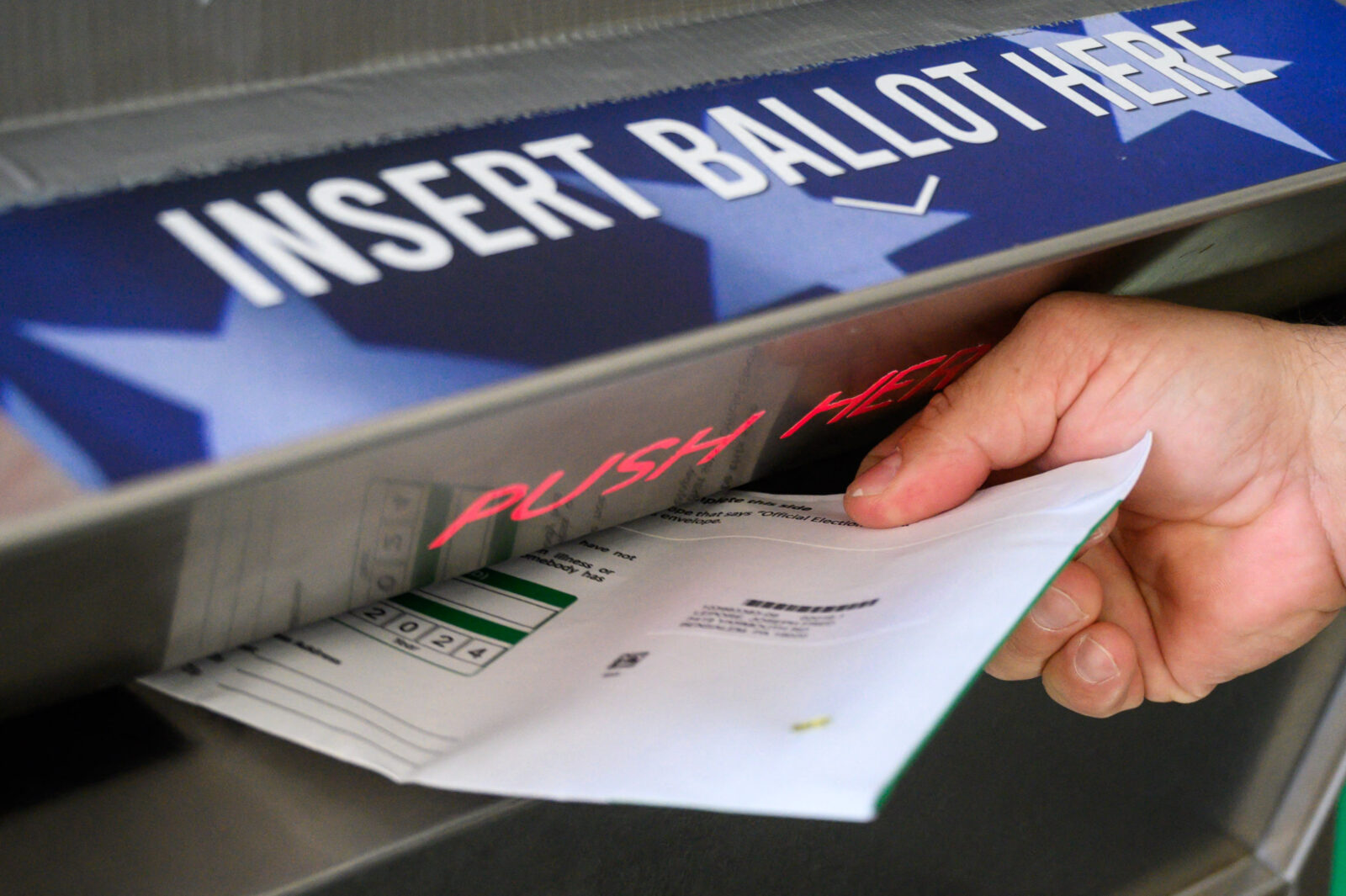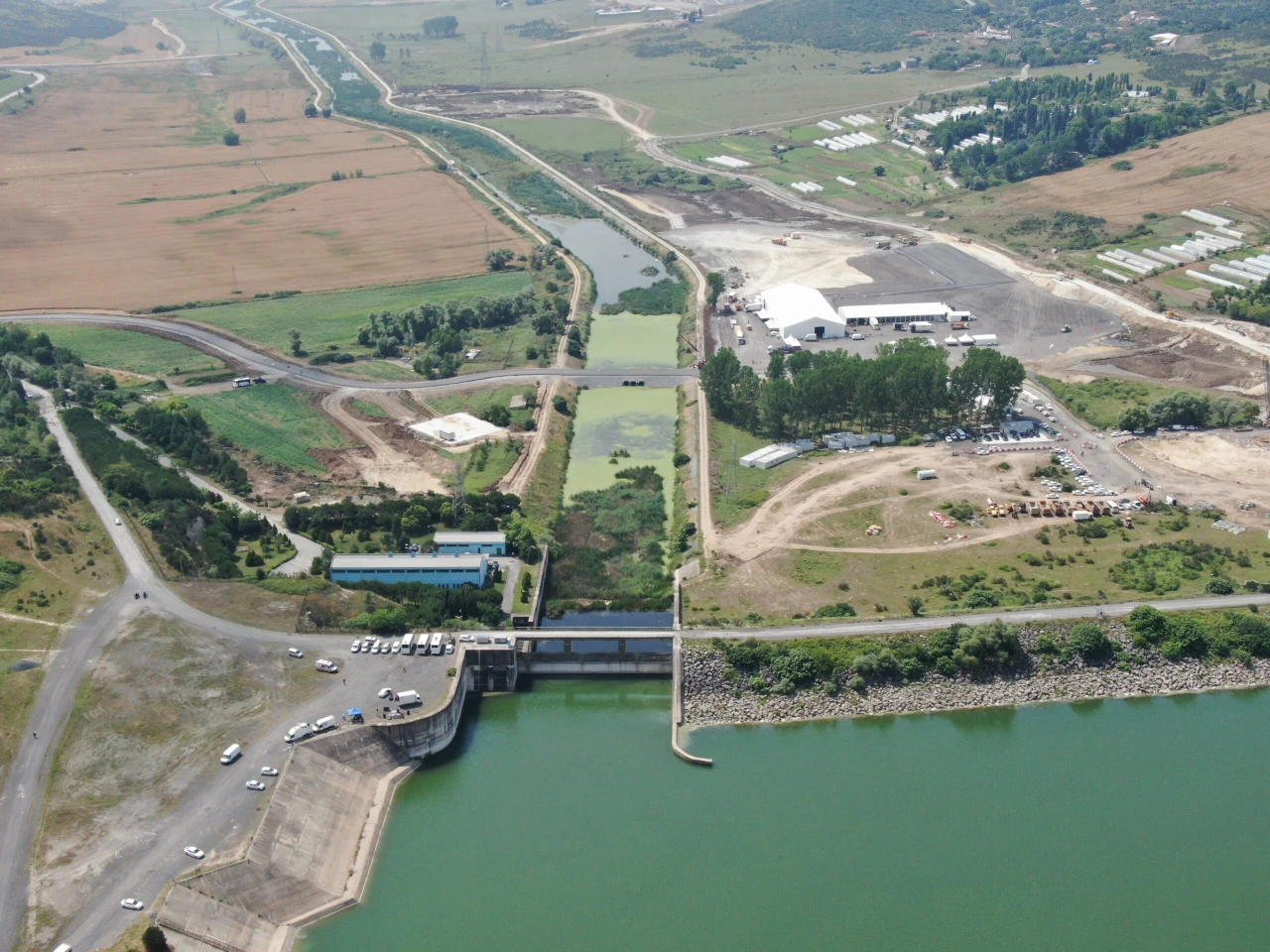US swing states and the electoral college: a critical battleground in 2024
 A voter uses a ballot drop box at the Bucks County Administration building voting on demand and ballot drop center in Doylestown, Pennsylvania, on October 31, 2024. (AFP Photo)
A voter uses a ballot drop box at the Bucks County Administration building voting on demand and ballot drop center in Doylestown, Pennsylvania, on October 31, 2024. (AFP Photo)
As the 2024 U.S. presidential election approaches, swing states are again poised to play a pivotal role in determining the outcome. These battlegrounds, characterized by their unpredictable voting patterns, hold significant sway in the Electoral College, where a candidate needs 270 electoral votes to win. Understanding the crucial issues at stake in these states will be essential for both candidates and voters.
Winner takes all electoral college dynamics
Swing states possess a unique electoral power, as they do not consistently align with one party, making their electoral votes critical in a closely contested election. The winner-takes-all system in most states means that a small margin of victory can translate into a substantial gain in electoral votes, amplifying the importance of each ballot cast.

Candidates have already begun targeting these battlegrounds, deploying resources strategically to engage undecided voters. High-stakes campaigning is reflected in the intense focus on states like Pennsylvania and Wisconsin, where previous elections have been decided by narrow margins.
Key issues for US swing states
A range of critical issues is taking center stage in swing states, influencing voter sentiment and decision-making.
- Economic Concerns: Economic issues dominate voter priorities, particularly job creation, wage growth, and inflation. Polling shows that 41% of swing state voters view the economy as their top priority, with inflation cited as a major concern. States like Pennsylvania and Arizona express heightened anxiety over household costs and economic stability.
- Healthcare: Access to affordable healthcare remains a vital issue, especially in states with high uninsured rates. Recent polling indicates that 23% of swing state voters rank healthcare among their top concerns, reflecting the growing significance of this issue in personal financial considerations.
- Social Issues: As societal attitudes evolve, issues such as abortion rights, gun control, and LGBTQ+ rights are increasingly influential in shaping voter preferences. The Supreme Court’s decision to overturn Roe v. Wade has heightened the urgency surrounding abortion rights, with 64% of voters indicating its importance in their electoral choices.
- Education: Education policy is a significant concern for many voters, particularly regarding funding for public schools and access to higher education. Candidates’ positions on these issues are resonating strongly, particularly with parents and young voters.
- Immigration: Immigration policies remain a contentious topic, particularly in states like Arizona and Nevada, where voters express strong opinions on how these policies impact economic stability and community safety.
- Climate Change: Environmental issues are increasingly relevant, as voters in swing states become more concerned about climate change and its impact on local economies, especially in regions susceptible to natural disasters.
Current swing states
Heading into the 2024 election cycle, several states are identified as key battlegrounds, including Arizona, Georgia, Michigan, Nevada, North Carolina, Pennsylvania, and Wisconsin. These states have shown fluctuating political leanings, with their recent voting patterns reflecting broader national trends and the evolving demographics of their populations.
For instance, Arizona’s growing Hispanic population makes outreach to Latino voters crucial, while Georgia grapples with legislation affecting voting access. In Michigan, economic recovery in the manufacturing sector remains a top concern, with healthcare access following closely behind.
The competitive nature of these swing states often leads to heightened voter engagement. As both parties ramp up efforts to mobilize voters, the potential for shifts in voter sentiment remains significant. Understanding local issues, demographic changes, and voter priorities will be essential for candidates looking to secure electoral victories in these crucial regions.



